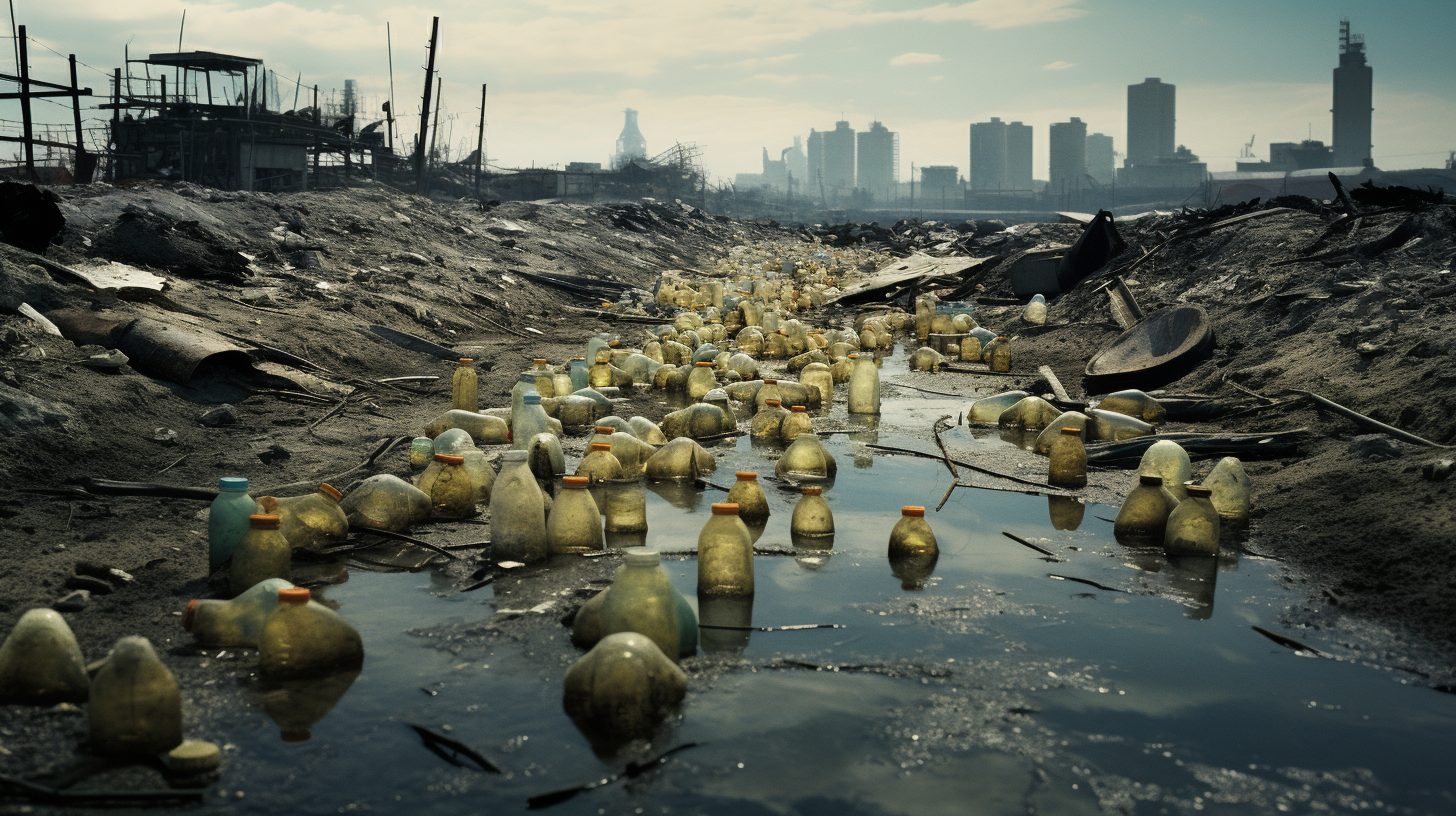In a world where the sun scorches relentlessly, the ground beneath our feet has become a stranger to the soothing kisses of raindrops. When the Ground No Longer Quenches Its Thirst explores a chilling reality: what happens when the Earth—our blue, water-rich planet—turns arid and empty of the lifeblood that used to flow freely through its veins?
Scorched Horizons, Desiccated Dreams
Imagine lands stretching towards the horizon, crumbling to dust at your touch. Plants wither, their roots clawing at the barren ground, seeking moisture that has long escaped the imprisonment of the soil. As if in a cruel twist, the very advancements meant to quench the Earth’s thirst have sucked it dry, leaving behind a husk—a wasteland where the notions of green and growth now exist only as fables whispered through the winds of change.
Once Fertile Now Fallow
The Dust Bowl of the 1930s was a mere prologue to the tragedy we now face across the globe. Fields once fertile now lie fallow, their bounties lost to the annals of history. Agriculture—a cornerstone of civilization—finds itself in existential crisis as the ground no longer quenches its thirst. What was a playground for planting and harvesting has turned into a battleground, where each grain of soil is contested, each drop of water a prize more precious than gold.
The Forsaken Aquifers
Beneath our feet lay the forgotten formulas for survival: aquifers, vast underground oceans of resource. They, too, have succumbed to our insatiable greed. Tales of the Ogallala Aquifer and its counterparts, which once served as the lifeblood of ecosystems, resonate as dark fairy tales—stories of abundance now part of a bygone era. In the present dystopia, the death knell of these subterranean sanctuaries signals an ominous tune for the future.
The Eradicated Rainfalls
Even the skies seem to abandon us; clouds that used to pour life now hover barren, as if afraid to traverse the wasteland below. Rain, once the herald of growth, has become a ghost—its absence marking the days, the months, the years of relentless drought. We stand beneath a sky that no longer weeps for the Earth, in lands where the rivers and streams no longer sing, leaving civilizations gasping for a breath that may never come.
Madness in Scarcity
As the wells run dry, so does our sanity. Chaos reigns where water scarcity bites the hardest. Cities once vibrant with culture and commerce have become warrens for the desperate; water is no longer a right but a privilege for those few who can afford its exorbitant cost. Hydroraiders are not bandits of fiction but stark realities, prowling the dry riversides and preying on the last vestiges of hope.
Toward an Uncertain Horizon
This narrative, while it may read like fiction, serves as a prophetic warning. The ground’s plea for hydration goes unheeded, and we must confront the inevitability of action—or rather, the catastrophic lack thereof. As we limp towards an uncertain horizon, one truth remains clear: we are intrinsically linked to our environment, and its fate whispers the blueprint of our own potential demise.
An Unquenchable End?
As the ground beneath us fractures and splits, echoing the divisions within our own society, we must ponder—is this thirst unquenchable? The answer lies choked within the dust clouds of despair, for as the ground has lost its ability to nurture, so too have we lost the wisdom to restore balance in a world that begs for respite.
The demise of the only home we’ve ever known could be etched into the dry soil of our once bountiful Earth. And while the final chapter hovers unwritten, teetering on the edge of action or somber inaction, we find ourselves at the crossroads of potential rebirth or inexorable extinction. It is within these pages that we map out our destiny, and decide if the ground will ever quench its thirst again.
